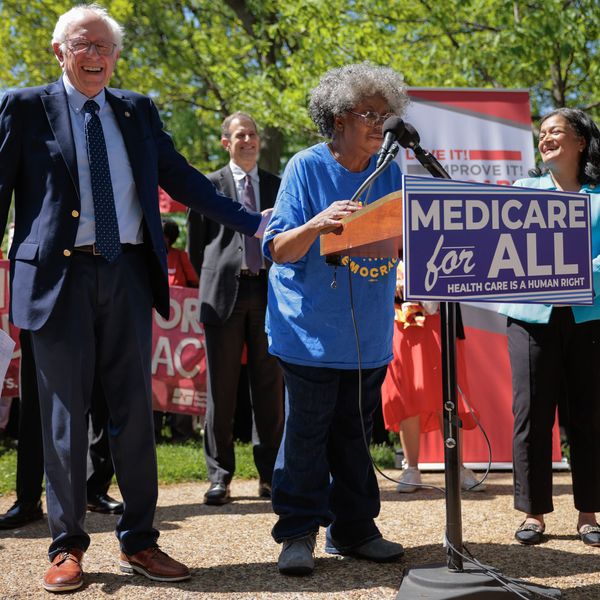The passage of health care reform legislation hasn't yet curbed the
steady upward creep of health insurance costs for workers. According to a
study by the health research group Kaiser Family Foundation:
Total premiums for family coverage, taking into account both
employee and employer contributions, are $13,770, up 3 percent from
last year, the survey found.
The share of the premium paid by workers jumped 3 percentage points to
30 percent. In the dozen years the survey has been conducted, the
employee share of family coverage has never topped 28 percent and has
never risen more than 2 percentage points in a single year.
The soaring cost of employer-based insurance is old news by now, but in light of the recession, the pattern doesn't augur well for the pending half-baked reform plan.
The rising cost of care could drive more employers to scale back
coverage or push workers to drop coverage. The major health care
reforms, meanwhile, won't go into effect until 2014, and even then may
fail to close coverage gaps, since the new private insurance exchanges
will focus on the uninsured (not the dysfunctionally insured).
Health and Human Services notes that women are often marginalized in the chaotic employer-sponsored insurance system:
Women are less likely to be employed full-time than men (52%
versus 73%), making them less likely to be eligible for employer-based
health benefits themselves. In fact, less than half of women have the
option of obtaining employer-based coverage on their own..... Single women
are twice as likely to be uninsured than married women (24% versus
12%).
The crisis impacts poor children as well: According to the Urban Institute,
"While 91 percent of higher-income children live in families where at
least one employed parent is offered health insurance through an
employer, this is true of just 53 percent of low-income children"; the
disparity is especially large for Latino kids.
Bear in mind that these households have succeeded in holding onto some form of coverage despite the skyrocketing costs.
If these are the "lucky ones," it's no wonder that Democrats have
scheduled their untested reforms to kick in well after the upcoming
election cycle.


